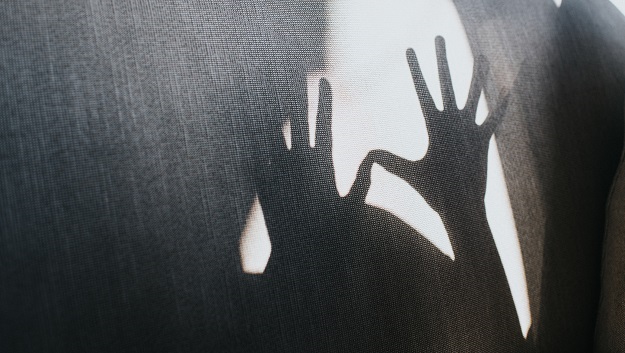
Gender-based violence and femicide are societal issues and cannot be done away with through the justice system alone. Society needs to reflect on some of the cultural practices that either consciously or unconsciously breathe life to GBVF, writes Phakamani Mthembu.
Despite efforts by government and Non-Governmental Organisations to raise awareness on gender-based violence and femicide, a lot of criminal behaviour is still taking place under the guise of our indigenous knowledge and cultural practices. For example, many traditional communities still practice ukuthwala, where parents or guardians marry off young women to men they have no love relationship with. The majority of cases result in rape of these young women, who are mainly minors.
The use of culture to perpetuate the abuse of women goes beyond the physical abuse experienced by most. It includes intangible issues such as the refusal to allocate land to women unless they are accompanied by a male spouse or relative within traditional communities. This is another long-standing practice that elevates the position of men above women. Most communities have accepted this as a norm. They are not aware of its unintended consequences to the dignity of a woman, including its contribution to gender-based violence and femicide.
In June 2021, the Pietermaritzburg High Court ruled that people living on land held under the Ingonyama Trust, especially women will not be compelled to have males apply for land ownership on their behalf. This is a big step towards challenging patriarchy that continues to entrench inequality between men and women.
The justice system is doing its level best to deal with the perpetrators of gender-based violence and femicide (GBVF) and protect the victims, including challenging the cultural norms that continue to give it life.
Gender-based violence and femicide are societal issues and cannot be done away with through the justice system alone. Society needs to reflect on some of the cultural practices that either consciously or unconsciously breathe life to GBVF.
We have also witnessed the rise of rape and killing of many members of the Lesbian, Gay, Bisexual, Transgender, Queer and Intersexual LGBTQI community members. These so-called corrective rapes and killings are perpetrated with silence and, in some instances, tacit support from the communities where these instances occur because of gender stereotypes within these communities.
Partnership with Traditional Leaders
Traditional leaders or Amakhosi/Kgosi play a key role in ensuring that cultural practices inconsistent with the country's laws are not practiced within their areas of jurisdiction. They should partner with government to fight against these practices that infringe on the rights of women. Their headmen, who are the eyes and ears over communities, can ensure that practices such as rape and ukuthwala (forced marriages) within traditional communities are in all instances reported to the traditional leaders who will, in turn, bring the matter to the attention of the law enforcement agencies for justice.
Indigenous knowledge holders within communities
Indigenous Knowledge Holders are, in most instances, bearers of our indigenous knowledge and should be used by communities to educate our youth about positive moral values based on Ubuntu. These positive moral values reinforce the respect and cherishing of our mothers, sisters, wives and daughters.
Any abuse and killing of our women is entirely inconsistent with the notion of Ubuntu and should be discouraged whenever our living human treasures interact with our members of the public, especially our youth.
Indigenous knowledge passed to the younger generation should take South Africa forward and build better men who cherish and protect their women and children.
The Department of Sport, Arts and Culture in collaboration with the Department of Traditional Affairs, through the National House of Traditional Leaders, will soon host workshops in all nine provincial houses of traditional leaderships. These workshops will highlight negative practices like ukuthwala and arranged marriages of minor girl children that are still practiced within traditional communities. Patriarchal practices of land ownership where women are excluded will also need to be discussed with traditional leaders in light of the recent landmark Ingonyama Trust ruling by the Pietermaritzburg High Court. This pertains particularly to the part of the ruling that deals with the allocation of traditional land to women without being accompanied by male spouses and relatives.
These provincial workshops will put a spotlight on the scourge of gender-based violence and femicide within the communities under traditional authorities. Traditional leaders will be encouraged to make full use of available resources like izinduna and traditional council meetings to call out men who are still abusing women within their traditional areas.
Traditional leaders will be encouraged to form close working relations with both the local police stations and the social services department, who will offer immediate support to victims of gender-based violence and femicide within their traditional authority.
- Phakamani Mthembu is a Director of Heritage, Preservation and Promotion in the Department of Arts and Culture.
To receive Opinions Weekly, sign up for the newsletter here.
*Want to respond to the columnist? Send your letter or article to opinions@news24.com with your name and town or province. You are welcome to also send a profile picture. We encourage a diversity of voices and views in our readers' submissions and reserve the right not to publish any and all submissions received.
Disclaimer: News24 encourages freedom of speech and the expression of diverse views. The views of columnists published on News24 are therefore their own and do not necessarily represent the views of News24.
